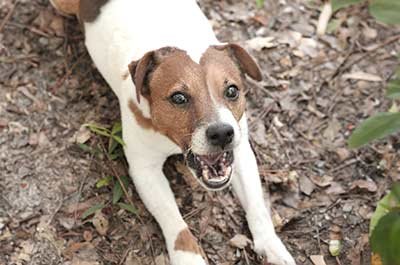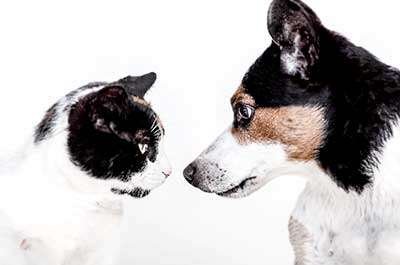Dogs are known to be loyal and loving companions, but they can sometimes exhibit less desirable behaviors. One such behavior is jealousy. If your dog starts acting out of character, it might be jealousy. In this blog post, we will discuss what to do if your dog is jealous and why it’s a problem. We will also provide some tips on how to help your dog overcome this issue.
The causes of jealousy in dogs.
Jealousy is often thought of as a human emotion, but it’s one dog can experience too. Jealousy is one of the most common problems owners face with their dogs. It’s also one of the most misunderstood.
Many people think that jealousy is simply a dog’s way of showing its dislike for another person or animal, but this isn’t always the case. In truth, jealousy often has more to do with a lack of confidence than anything else. Insecure dogs are more likely to feel threatened by someone new, resulting in jealous behavior.

There are a few different reasons why your dog might be feeling jealous. One possibility is that they feel threatened by another pet in the home. If you’ve recently added a new dog or cat to the family, your old pet may feel displaced and jealous.
Additionally, changes in your daily routine (like a baby being born or a new job) can trigger feelings of jealousy in dogs. They may not understand what’s happening, but they know that something has changed, and they’re no longer the center of attention.
Whatever the reason, jealousy is a sign that something is wrong with your dog’s emotional state. And if left unchecked, it can lead to serious behavioral problems down the road.
Some signs that your dog is jealous.
Jealousy can manifest itself in different ways in dogs. Some may become disruptive or destructive when you’re paying attention to someone else. Others may try to insert themselves between you and the object of their jealousy, whether that’s another person or animal. And some may become withdrawn and refuse to engage with anyone at all.
They might also start growling, barking, or snapping. Or, they may try to get your attention by pawing at you or jumping up on you. If you notice any of these behaviors, it’s important to nip them in the bud. The last thing you want is for your jealousy to turn into aggression.
Dogs experience jealousy as humans do.
While jealousy’s causes may differ in dogs and humans, the emotion itself is very similar. Maybe they give you the cold shoulder when you come home from work and tell tales of their day, or they sulk in the background while you’re cuddling with your partner on the couch.
Though it might seem like they’re just being moody, dogs experience jealousy in much the same way humans do. And, just like humans, a little bit of jealousy can be healthy for relationships – but too much can be a problem.
Dogs experience the same feelings of insecurity, fear, and anxiety that we do when we’re jealous. And like humans, dogs can also suffer from low self-esteem as a result of their jealousy.
Of course, every dog is different, so not all will react to jealousy similarly. And several factors can affect how prone your pup is to feel jealous – from their age and personality to their past experiences.
If you think your dog is feeling jealous, the best thing you can do is to talk to your vet or a behaviorist. They will be able to help you figure out what’s causing your dog’s jealousy and offer advice on how to deal with it.
Jealousy is often accompanied by other negative emotions like anxiety and fear.
As such, it’s also essential to look for signs of these emotions. If your dog is constantly on edge, panting or shaking, it may feel anxious. And if they’re cowering away from people or animals, they may be afraid.

These emotions can be just as problematic as jealousy, so addressing them is crucial.
Fortunately, many of the same techniques that work for jealousy can also be used for anxiety and fear. It’s also worth noting that jealousy is often accompanied by other behavioral problems, like separation anxiety and possessiveness.
So, if you notice that your dog is experiencing more than one of these issues, it’s a good idea to seek professional help. Often, the best way to do this is with behavior modification training.
This type of training can help your dog learn to associate positive experiences with the things they’re afraid of or anxious about.
Why can jealousy be a problem in a dog-owner relationship?
If he constantly tries to push you away from other people or animals, it will be hard to build a trusting bond. This is because jealousy often leads to mistrust. And, over time, this mistrust can turn into aggression.
Jealousy can also put a strain on your relationship with your dog. If you constantly have to deal with their disruptive or destructive behavior, it will be hard to enjoy your time together. Additionally, if your dog is anxious or afraid, it won’t be easy to help them feel comfortable and secure.
How to deal with a jealous dog?
If you think your dog is jealous, there are some things you can do to help address the issue.
- Try to identify what triggers your dog’s jealousy. Does he get jealous when you pet other dogs? When do you talk on the phone? Once you know what triggers your dog’s jealousy, you can try to avoid those situations or redirect his attention when they occur.
- You should also ensure your dog is getting enough exercise, as boredom can often be a jealousy factor. If you are consistent with your training and management, you can help your dog overcome jealousy and live a happy life.
- Provide them with plenty of attention and affection. This will help them feel loved and secure and may help reduce their jealousy.
- Try to spend some time each day playing with your dog. This will not only help tire them out physically but also mentally. And a tired dog is a happy dog.
If jealousy is left unchecked, it can lead to aggression and other behavior problems.
Jealousy is a normal emotion, but it can become problematic if left unchecked. When dogs are jealous, they may engage in aggressive behaviors like growling, snapping, or biting. They may also start to have issues with obedience and house training.
If you think your dog is experiencing jealousy, it’s essential to address the issue as soon as possible. Don’t let it turn into a bigger problem.
The importance of socialization for dogs.
Socialization is critical for dogs. It’s how they learn to interact appropriately with other dogs and people. Without socialization, your dog may become fearful or aggressive.
Dogs that aren’t adequately socialized often have problems later in life, such as fear of new people and environments. Socialization can also help prevent jealousy in dogs. Jealousy is a common problem in dogs, especially those who haven’t been properly socialized.
If your dog is jealous, he may become aggressive or try to control you. Proper socialization can help prevent jealousy and other behavior problems in dogs.
While all dogs need socialization, it is especially important for puppies, who are still learning about the world around them.
Fortunately, there are several ways to socialize a dog, such as taking them to puppy class, taking them on walks in different environments, and introducing them to new people and animals.
By making sure your dog is well-socialized, you can help them lead a happy and healthy life.
How to socialize an adult dog?
Even if your dog is no longer a puppy, it’s never too late to socialize with them. Socialization benefits all dogs and should not be ignored based on age.
However, socializing an adult dog can be a little more challenging than socializing a puppy. This is because puppies are still learning about the world and are more open to new experiences.
On the other hand, adult dogs may be more set in their ways and less likely to try new things.
That doesn’t mean you can’t socialize an adult dog– you just have to put a little more effort into it. There are several ways to socialize adult dogs, such as taking them to dog parks, taking them on walks in different environments, and introducing them to new people and animals.
By ensuring your dog is well-socialized, you can help them lead a happy and healthy life.
Don’t punish your dog for being jealous.
Punishing your dog for being jealous will only make the problem worse. Jealousy is a natural emotion; punishing your dog for feeling it will only make them more anxious and stressed.
If you punish your dog for being jealous, they may associate you with negative experiences and become fearful of you. Additionally, punishment can lead to aggression and other behavior problems.
Instead of punishment, focus on positive reinforcement. This means rewarding your dog when they display desired behaviors, such as calmness and relaxation. By using positive reinforcement, you can help your dog overcome their jealousy and live a happy life.
Conclusion.
Jealousy in dogs is normal but can become a problem. If your dog is exhibiting signs of jealousy, there are a few things you can do to help curb the behavior. The most important thing is to be aware of the root cause and address it accordingly. With consistency and positive reinforcement, you can help your jealous dog become more confident and secure. Do you have any tips for helping a jealous dog? Share them in the comments below!

Discover the dynamic world through the eyes of Joanna Perez: a celebrated Cognitive Behavioral Therapy Practitioner and an ardent blogger. Not just a writer, Joanna is also an explorer, partner, and a proud mother. Her expertise goes beyond penning thoughts on parenting, health, and lifestyle; she’s also a certified Women Empowerment Life Coach. With training in Life Mastery, Health, Happiness, and Success, she’s equipped to guide you through life’s complexities. Her dedication to education shines as she’s dived deep into the realms of Neuroscience for Parents and completed the Skilled Helper Training Course.
Reviewed By: Anna West and Brenda Tillman
Edited By: Lenny Terra
Fact Checked By: Marcella Raskin
Photos Taken or Curated By: Matthew Mansour